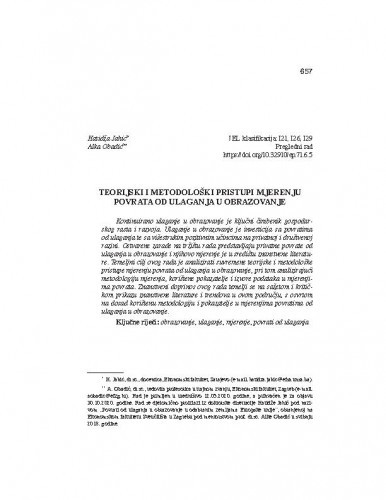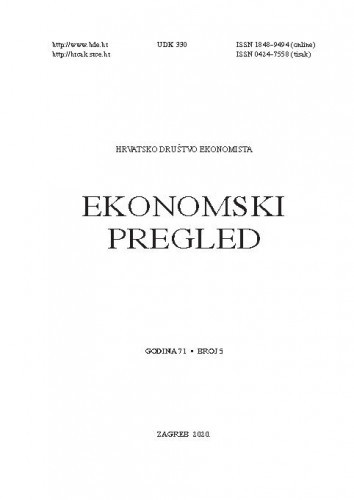Kontinuirano ulaganje u obrazovanje je ključni čimbenik gospodarskog rasta i razvoja. Ulaganje u obrazovanje je investicija sa povratima od ulaganja te sa višestrukim pozitivnim učincima na privatnoj i društvenoj razini. Ostvarene zarade na tržištu rada predstavljaju privatne povrate od ulaganja u obrazovanje i njihovo mjerenje je u središtu znanstvene literature. Temeljni cilj ovog rada je analizirati suvremene teorijske i metodološke pristupe mjerenju povrata od ulaganja u obrazovanje, pri tom analizirajući metodologiju mjerenja, korištene pokazatelje i izvore podataka u mjerenjima povrata. Znanstveni doprinos ovog rada temelji se na sažetom i kritičkom prikazu znanstvene literature i trendova u ovom području, s osvrtom na dosad korištenu metodologiju i pokazatelje u mjerenjima povratima od ulaganja u obrazovanje.; Continuous investment in education is a key factor in economic growth and development. Investing in education is an investment with a returns on investment and with multiple positive effects at the private and social levels. Earnings in the labor market represent private returns on investment in education and their measurement is in the center of the scientific literature. The main objective of this paper is to analyze modern theoretical and methodological approaches to measuring returns on investment in education, while analyzing the measurement methodology, indicators used and data sources. The scientific contribution of this paper is based on a concise and critical review of the scientific literature and trends in this field, with reference to the methodology used and indicators in measuring returns on investment in education.
Sažetak

 Ekonomski pregled : mjesečnik Hrvatskog društva ekonomista : 71,6(2020) / glavni i odgovorni urednik Josip Tica.
Ekonomski pregled : mjesečnik Hrvatskog društva ekonomista : 71,6(2020) / glavni i odgovorni urednik Josip Tica.